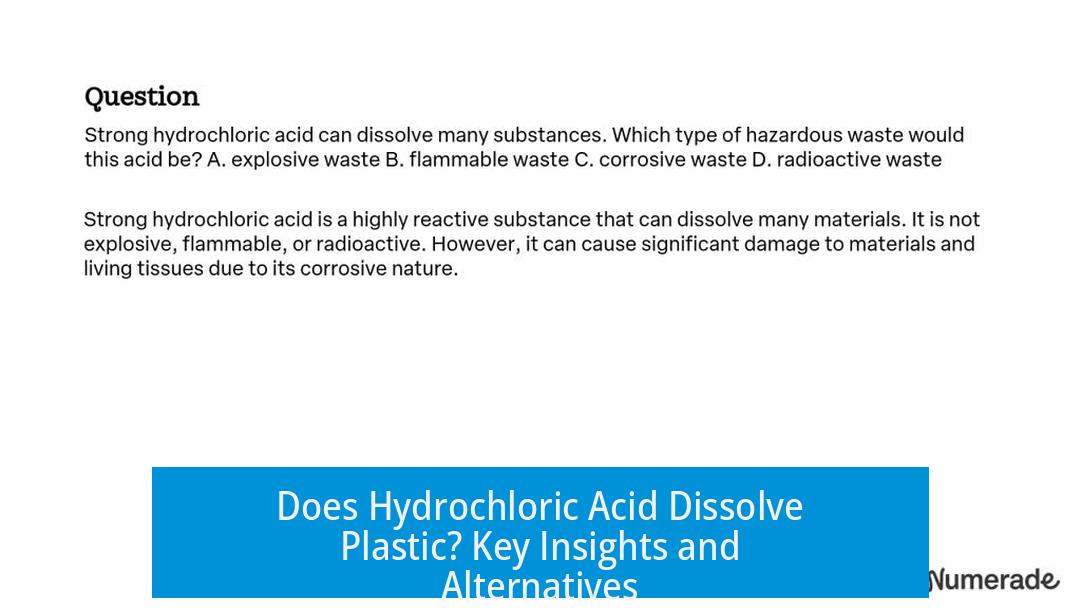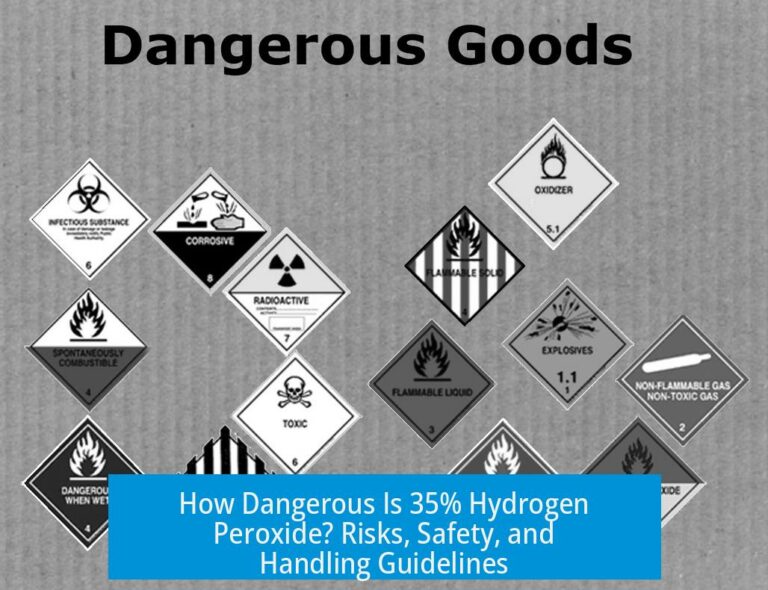Does Hydrochloric Acid Dissolve Plastic?
Hydrochloric acid generally does not dissolve plastic. The effect of hydrochloric acid on plastic depends largely on the type of plastic, but common plastics resist dissolution by hydrochloric acid. This makes hydrochloric acid a poor choice for breaking down most plastics.
Response of Common Plastics to Hydrochloric Acid
- Plastics such as PVC, polyethylene, Neoprene, and Teflon are resistant to hydrochloric acid.
- These materials maintain structural integrity even when exposed to concentrated or heated hydrochloric acid.
- Users working with hydrochloric acid and plastics typically do not observe degradation or melting of these plastics.
Why Hydrochloric Acid Does Not Dissolve Plastic
Plastics like PVC and polyethylene consist of hydrocarbon chains or chlorinated compounds that HCl does not chemically attack. Hydrochloric acid is a strong acid but lacks oxidizing properties needed to break down robust polymer chains.
In contrast, other substances such as copper oxides or carbonates on metal wires can be chemically removed by hydrochloric acid without affecting the underlying metal or plastic insulation. This selective reactivity highlights hydrochloric acid’s inability to dissolve plastic but its usefulness in cleaning metal surfaces.
Alternatives for Removing or Dissolving Plastic
- Organic solvents such as acetone can dissolve certain plastics or residues.
- Heating plastic with a blowtorch until it burns is an effective way to remove plastic residues.
- Melting plastics requires thermal methods or specific organic solvents, not acids like hydrochloric acid.
Key Practical Notes
- Do not use nitric acid when cleaning copper wires because it can dissolve the metal itself.
- Dilute hydrochloric or sulfuric acid can clean metal oxides without compromising plastic insulation.
Summary of Key Points
- Hydrochloric acid does not dissolve common plastics such as PVC, polyethylene, Neoprene, or Teflon.
- The chemical structure of these plastics resists attack from hydrochloric acid.
- Organic solvents or heat methods are better suited for dissolving or removing plastics.
- Hydrochloric acid is useful for removing metal oxides without damaging plastic.
Does hydrochloric acid dissolve all types of plastic?
No, hydrochloric acid does not dissolve all plastics. Some types like PVC, polyethylene, Neoprene, and Teflon remain unaffected by it.
Can hydrochloric acid remove plastic residues from wires?
Hydrochloric acid can clean copper oxide off wires but does not dissolve the wire’s plastic insulation.
What solvents work better than hydrochloric acid for dissolving plastic?
Organic solvents like acetone can dissolve plastic. Heating can also burn away plastic residues effectively.
Is heating a safe method to remove plastic from metal parts?
Yes, heating plastic residues with a blowtorch until red hot will burn away the plastic, leaving the metal intact.





Leave a Comment